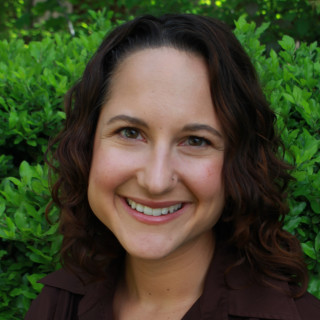On my first day as a physician this past June, I frantically flitted around the pediatric ED. Sweat soaked my bright turquoise scrubs. The foam on my COVID-mandated face shield was already slipping from its plastic. I couldn’t imagine how I’d ever learn to use the EMR or keep track of three patients at once; I could barely keep track of where the bathroom was. Near the end of the day, I printed out my first paper prescription. While signing my name with an “MD” after it, I started giggling. Against my will and to my total embarrassment, this soon grew into full-blown laughter. My name with an MD after it. Me, a doctor. What a joke.
I had long wondered when I’d finally feel “like a doctor.” It didn’t happen at my medical school graduation, where hearing my name read over Zoom made me feel proud but also confused. Seemingly nothing had changed about my knowledge or skills over the past several months. If anything, I had started to forget things I’d learned earlier. But now I was a doctor?
As intern year progressed, I kept waiting for that defining moment when, from the chrysalis of my still feeling like a student would emerge the wings of an official doctor. The moment when the word “physician” on my badge would no longer seem like a costume.
I thought it might happen when I finally managed to write an order without having to triple-check and also ask a pharmacist to review it for good measure. Or perhaps when I came up with management plans that my attending agreed with. Or maybe when I taught parents something new about caring for their children’s health. Or when I answered a nurse’s question without having to ask my senior resident for confirmation. Or when I resuscitated a newborn. Or when I witnessed my patient die.
But all of those things happened halfway through my intern year, and I still didn’t feel like a doctor. Diagnosis: imposter syndrome.
Or more appropriately, “imposter phenomenon,” as psychologists Pauline Clance and Suzanne Imes first described it back in 1978. Studying a group of high-achieving women, they identified an “internal experience of intellectual phonies.” The women in the study had earned advanced degrees and multiple professional awards — yet internally, they still did not feel successful. Instead, they felt that they had fooled those around them, thus accruing undeserved accolades. These women reported symptoms of anxiety, depression, lack of self-confidence, and frustration due to an inability to meet self-imposed achievement standards. Sound familiar?
Clance and Imes found that it often took several therapy sessions for a participant to admit to her “well-guarded secret” of feeling like an imposter, because she believed that “if she revealed her assumed unique feelings of phoniness she would meet with criticism or at least very little understanding on the part of others.” Now, decades later, I have the advantage of knowing that hundreds of study participants, essayists, and celebrities have disclosed similar feelings. Michelle Obama, Tina Fey, Sonia Sotomayor, Meryl Streep, and Maya Angelou have all publicly admitted to sometimes feeling like they’ve faked people out and don’t deserve their success.
Nonetheless, those initial study participants’ sentiments still resonate with me. I worry, and partway believe, that feeling like a fake doctor may be evidence that I do not deserve to be a real one.
The role of gender in imposter phenomenon is an ongoing area of research. For me, the sexist microaggressions I encountered since starting residency certainly haven’t helped my confidence. When I was giving medical news to my patient’s father, for instance, and he looked toward the male medical student standing beside me for confirmation. Or when my patient’s parents refused to refer to me as “doctor,” even after I’d introduced myself multiple times with the title. Or when my patient’s father, looking at the male social worker beside me instead of looking at me, said, “It’s always the pretty ones that surprise you.”
Microaggressions like these usually seem too trivial for me to bring up (hence the term). But they have the big power of making me feel small. That’s the thing about microaggressions — they can slip by, invisible to bystanders. When their target calls them out and makes them visible, that person can come across as too sensitive, too whiny, too, in my case, stereotypically female.
I can’t fully attribute my imposter phenomenon to sexism, though. Since birth, my life has brimmed with powerful female role models. In pediatrics, a female-predominant field, I have worked alongside amazing female mentors and colleagues. And I can’t fully attribute it to being an intern — though inexperience plays a role — since I’ve had imposter feelings in varying professional roles throughout my adult life.
In writing this piece, though, a surprising change has taken place. My imposter phenomenon has shrunk. It hasn’t become less intense, but put down on paper, it has become less all-encompassing. Yes, my ID badge still mostly feels like a costume. But my role in patient care is about so much more than a title. I get to help patients and families through medical decisions and with being present in their experiences. I get to work in wonderful interdisciplinary teams. I get to be endlessly curious about both science and stories. Guided by my patients and colleagues, becoming a doctor is an ongoing process, with growth and discovery that I hope will span my career.
In the words of Maya Angelou, “We delight in the beauty of the butterfly, but rarely admit the changes it has gone through to achieve that beauty.” Perhaps focusing on the wings is missing the point.
Have you encountered experiences of imposter phenomenon? Share your story in the comment section below.
Hanna Saltzman, MD, is a pediatric resident physician in Salt Lake City. You can reach her on Twitter @hannasaltzman or read more of her writing at https://www.hannasaltzman.com/publications.
Image: GoodStudio / shutterstock







